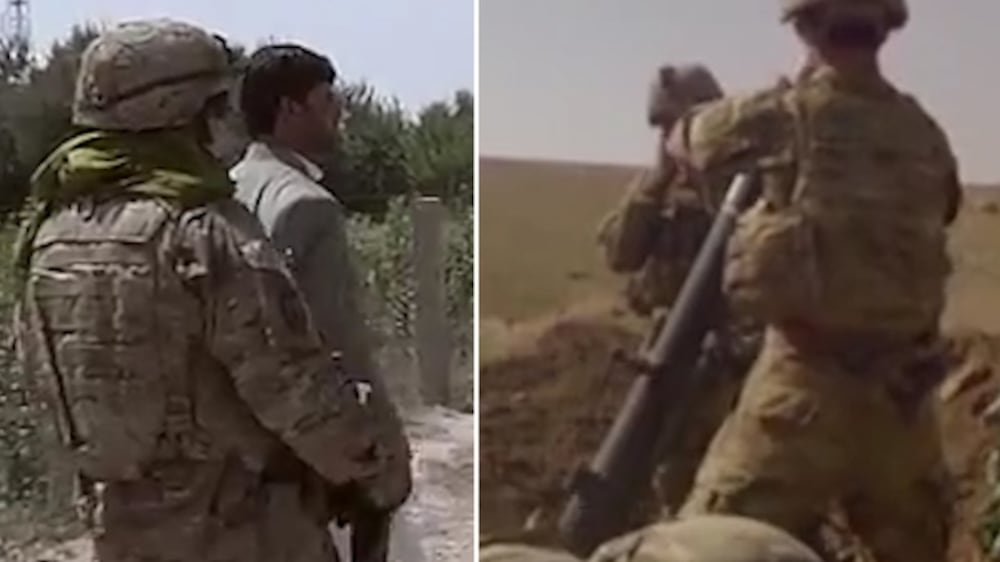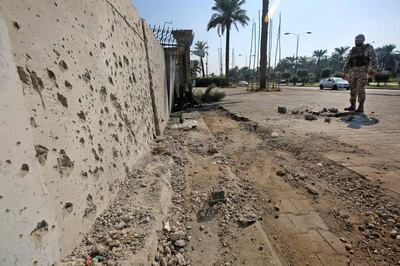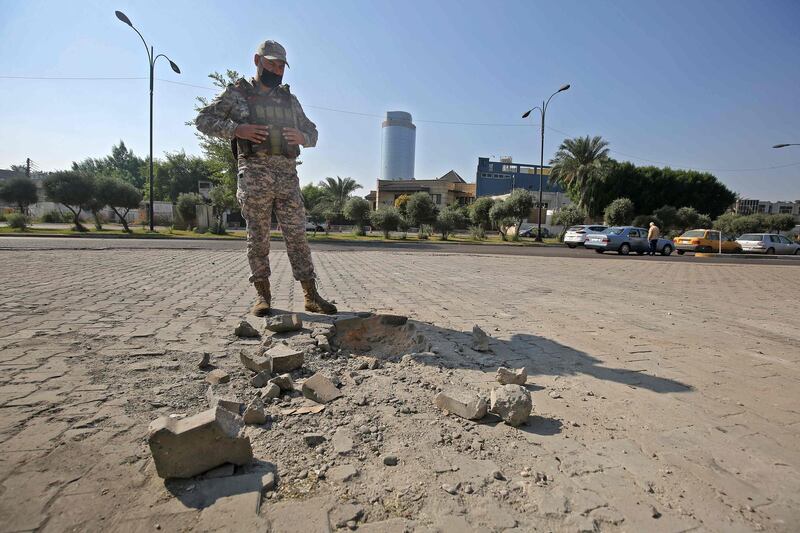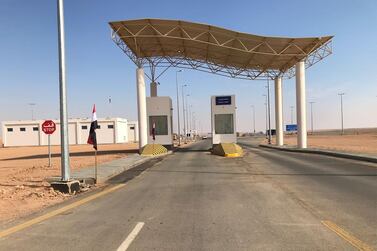Breaking a nearly one-month lull, Tuesday night’s rocket attack on Baghdad’s fortified Green Zone could put at risk a fragile truce.
In October, a ceasefire was announced by a group of powerful Iran-backed militias to allow the withdrawal of US forces.
Shortly before midnight, seven rockets were fired from the Shiite-dominated east side of Baghdad towards the Green Zone, the seat of key government offices and western diplomatic missions, according to the government.
US cuts troop numbers in Afghanistan and Iraq

Only four rockets landed in the Green Zone, while the rest hit nearby areas, killing a child and wounding five others.
It is not clear whether the rockets or the US C-Ram defence system, which can fire 4,500 rounds per minute and is designed to intercept rockets, caused the civilian casualties.
Kataib Hezbollah, one of the most influential Iran-backed militia groups, distanced itself from the incident and accused unknown parties for trying to cause the truce to collapse.
"The truce is still there," spokesman Mohammed Mohie told The National. "There is no justification for the attack."
The truce was declared early last month by an array of Iran-aligned militias calling themselves the Iraqi Resistance Co-ordination Commission. On declaring the truce, they stipulated that it would be conditional on the US submitting a clear timeline for the withdrawal of its troops.
“It was an attempt to stir things up by those who want the US troops to stay or to push the Americans to carry out attacks against the resistance factions or Iran,” Mr Mohie said.
Shortly after the rockets were fired, a Telegram channel close to Iran-backed militias praised the attack and relayed a claim of responsibility from a newly formed Shiite group.
“Islamic resistance faction Ashab Al Kahf claims responsibility for the attack against the military base inside the US embassy,” Telegram Channel Sabreen News said.
It said that the attack was retaliation for the arrest of three of its members in the town of Fallujah, west of Baghdad, by US troops the day before, without elaborating.
The authenticity of the statement could not be immediately verified by The National.
“It sounds like the truce is over, but the biggest groups do not want to make the announcement themselves," said Hadi Jalo Marie, chairman of the Political Decision Centre think tank in Baghdad.
"The groups are waiting now for the new US administration to set their priorities in Iraq,” he said.
The road to escalation
As Iraqi security forces collapsed in the wake of the 2014 ISIS onslaught in the north and west of the country, the Iraqi government invited the US troops back after their 2011 departure at the end of an eight-year occupation. The US sent more than 5,000 troops to advise and train Iraqi security forces.
But since late 2017 when Iraq declared victory over ISIS, Iran-backed Shiite politicians and militias have been calling for US troops to withdraw from Iraq.

Tension escalated late last year when the US accused Kataib Hezbollah of attacking Iraqi military bases hosting American troops, prompting strikes against militias in Iraq and Syria.
The situation deteriorated again in January when the US launched a brazen drone strike that killed Iran’s top military commander, Qassem Suleimani, after he landed at Baghdad airport with influential Kataib Hezbollah leader Abu Mahdi Al Muhandis.
Angry at the US military’s unilateral move, Shiites in parliament pushed for a decision to evict US troops. Sunnis and Kurds did not endorse the move, saying the country still needed the US military for training Iraqi troops and to help chase down ISIS remnants.
For months, militias staged almost daily rocket and bomb attacks against US troops, the US embassy and convoys supplying international coalition bases.
Late in September, the US said it would reduce its troop numbers in Iraq from about 5,200 to 3,000, leaving behind advisers to assist Iraqi security forces in dealing with the remnants of ISIS.
Outgoing US President Donald Trump plans to begin pulling the remaining troops out of Iraq and Afghanistan, scaling forces down to 2,500 in both countries before the end of the year.
Mr Marie said the attack carried a message to Mr Trump amid “reports over his intentions to launch attacks against resistance factions or Iran”.
“We are going to see more such attacks from now to January when Mr Trump is supposed to leave the White House,” Mr Marie said.







